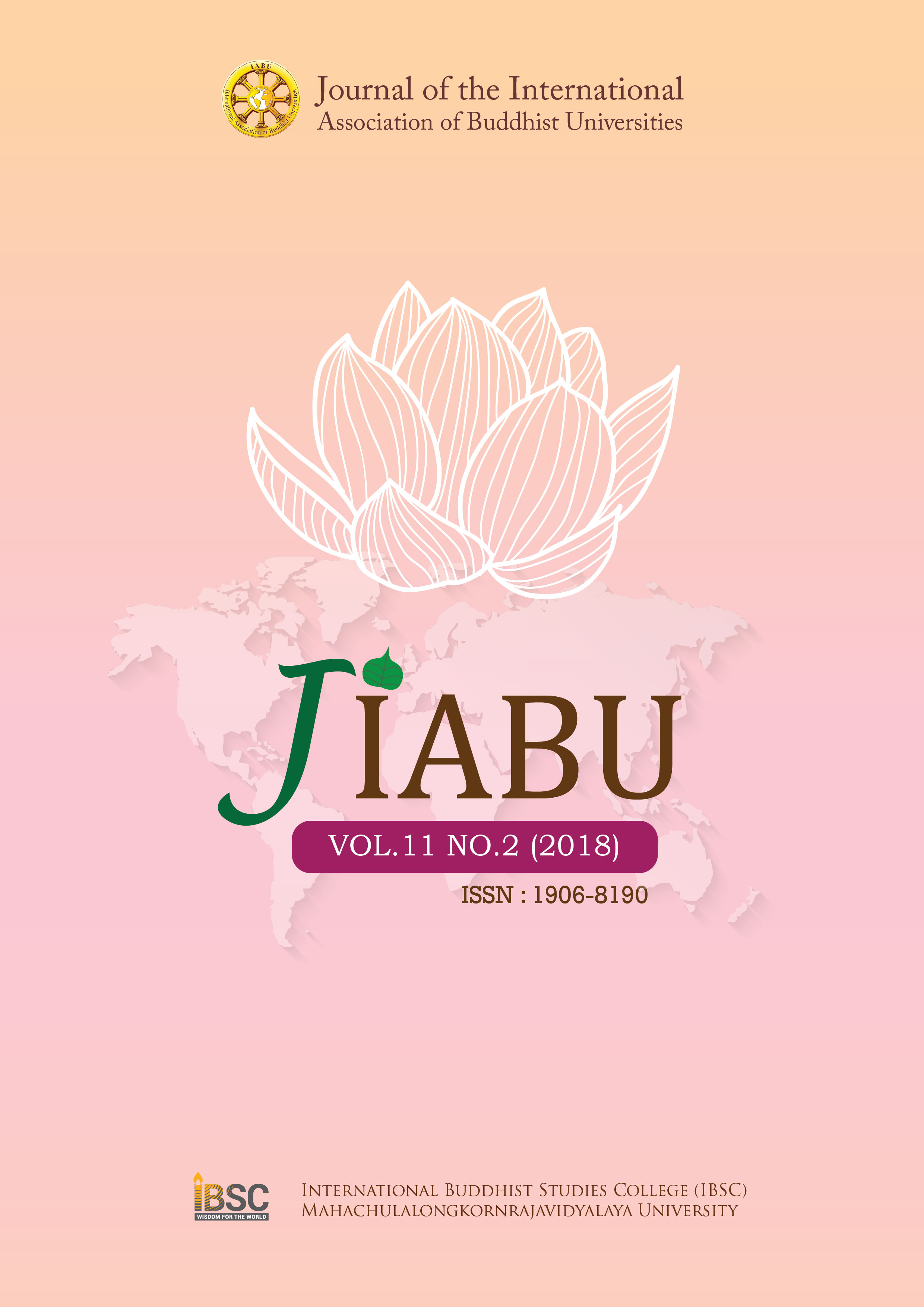The Relationship Between Internal and External Conflict: A Buddhist Way to Discover Peace
Main Article Content
Abstract
The term ‘conflict’ is used for both people and groups who debate, and even kill each
other, as a result of having different beliefs, attitudes, needs and benefits. On the other hand,
the term ‘peace’ connotes as an antonym word of conflict. The purpose of this paper is to draw
a brief account from the scholastic and Buddhist perspective, how the conflict appears in the
mind (internal) and comes into the external world through the behavior (five aggregates), what
is the relationship between internal and external conflict, and what are the ways to discover
inner rapture or peace through avoiding conflicts both internally as well as externally.
Article Details
Views and opinions expressed in the articles published by The Journal of the International Association of Buddhist Universities (JIABU), are of responsibility by such authors but not the editors and do not necessarily reflect those of the editors.
References
Dhammananda, K. Sri , The Dhammapada, Taipei: The corporate body of the Buddha,
Taiwan, 2002.
Mack, W. Reymond and Peace, John, Sociology and Social Life; New York : D Van Company,
1973
Dhammahaso, Phramaha Hansa, Article on: “Buddhist Values towards Conflict and Peace”:
Buddhist Virtues in Socio-Economic Development, ICDV Conference Volume.
Bangkok: MCU press, 2011
Harris, J. Elizabeth, Violence and disruption in Society: a study of Early Buddhist Text.
Kandy: Buddhist Publication Society, 2002.
Chah, Ajahn; A Collection of Talks Ajahn Chah. Ubon Ratchatani: Wat Nong Pah Phong,
2009.
Bhikkhu Thanissaro, Madhupindika Sutta: the Bell of honey. Access on Date: 5th January,
2018. (http://www.accesstoinsight.org/tipitaka/mn/mn.018.than.html)
Malalasekera, G.P., Dictionary of Pāli proper names. (http://what-buddha-said.net/library/
DPPN/index_dict.ppn.htm)
www.urbandharma.org & www. oxforddictionaries.com


